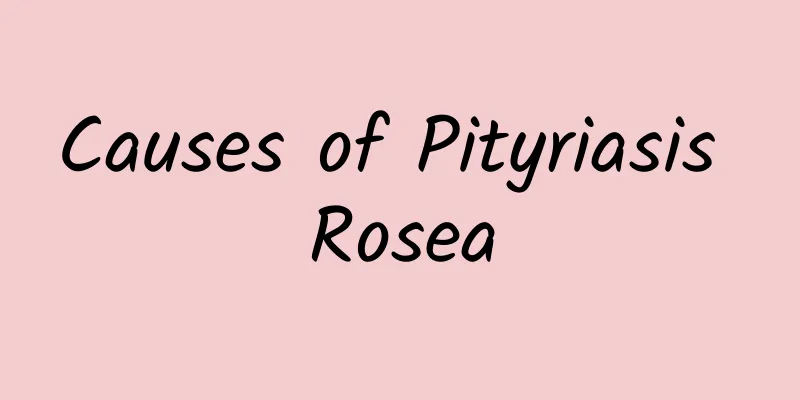What is hypercalcemia

|
Although people nowadays pay much attention to their health, our health condition is still at risk of being harmed by some diseases. Hypercalcemia is a disease that is very harmful to our health, but many people don’t know much about this condition. So what exactly is hypercalcemia? Let’s take a look at the introduction in this article. Hypercalcemia is a very common clinical condition. We must pay enough attention to it. So what exactly is hypercalcemia? Experts point out that hypercalcemia is when the serum calcium concentration is higher than 2.75mmo1/L. Many malignancies may be complicated by hypercalcemia. Hypercalcemia is more common in breast cancer, bone tumors, lung cancer, gastric cancer, ovarian cancer, multiple myeloma, and acute lymphocytic leukemia. About 1/3 of breast cancer patients may develop hypercalcemia. The clinical manifestations of hypercalcemia are related to the magnitude and rate of increase in blood calcium. According to the blood calcium level, hypercalcemia can be divided into mild: blood calcium between 2.7 and 3.0 mmol/L; moderate: between 3.0 and 3.4 mmol/L; severe: above 3.4 mmol/L. 1. Neuropsychiatric symptoms include only fatigue, listlessness, and indifference in mild cases; severe cases include headache, muscle weakness, decreased tendon reflexes, depression, irritability, unsteady gait, language disorders, hearing, vision and orientation disorders or loss, stupor, abnormal behavior and other neuropsychiatric symptoms. Delirium, convulsions, and coma may occur during hypercalcemic crisis. The occurrence of neuropsychiatric symptoms is mainly due to the toxicity of high calcium to brain cells, which can interfere with the electrophysiological activities of brain cells. 2. Cardiovascular and respiratory system symptoms can cause increased blood pressure and various arrhythmias. The electrocardiogram may show shortened QT interval, ST-T changes, atrioventricular block and hypokalemic U waves, which may cause fatal arrhythmia if not treated in time. Hypercalcemia can cause increased renal excretion and electrolyte imbalance, making bronchial secretions viscous, weakening the ciliary activity of mucosal cells, and poor drainage of bronchial secretions, which can easily lead to lung infection, dyspnea, and even respiratory failure. 3. Digestive system symptoms include loss of appetite, nausea, vomiting, abdominal pain, constipation, and in severe cases, paralytic intestinal obstruction. Calcium can stimulate the secretion of gastrin and gastric acid, so people with hypercalcemia are prone to peptic ulcers. Calcium is ectopically deposited in the pancreatic ducts and stimulates the secretion of large amounts of pancreatic enzymes, thus causing acute pancreatitis. 4. Urinary system symptoms Hypercalcemia can cause renal tubular damage, reduce the renal tubular concentrating function, and a large amount of calcium is excreted in the urine, causing polyuria, thirst, polydipsia, and even dehydration, electrolyte disorders and acid-base imbalance. Calcium deposition in the renal parenchyma can cause interstitial nephritis and salt-losing nephropathy. Nephrocalcinosis, which eventually develops into renal failure, also predisposes to urinary tract infections and stones. 5. Manifestations of ectopic calcium deposition Hypercalcemia is prone to ectopic calcium deposition, which can deposit on the blood vessel walls, cornea, and conjunctiva. The eardrum, surrounding joints and cartilage can cause muscle atrophy, corneal disease, red eye syndrome, hearing loss and joint dysfunction, respectively. 6. Because calcium ions can activate coagulation factors in the blood system, extensive thrombosis may occur. 7. Hypercalcemic crisis: When blood calcium rises to above 4mmol/L, symptoms include polydipsia, polyuria, severe dehydration, circulatory failure, and azotemia. If not promptly treated, the patient may die from renal failure and circulatory failure. In rare severe cases, neurologic manifestations may include drowsiness, weakness, and decreased reflexes. A shortened QT interval on the electrocardiogram suggests hypercalcemia. Bradycardia and first-degree atrioventricular block have also been reported. Acute hypercalcemia may result in a significant increase in blood pressure. Gastrointestinal manifestations include atonic constipation and anorexia, and in severe cases, nausea and vomiting. Hypercalcemia of various causes may accompany acute pancreatitis. After reading the introduction in this article, everyone should have some understanding of what hypercalcemia is. What we want to remind everyone is that hypercalcemia is quite harmful and usually leads to various complications. Therefore, in daily life, everyone should pay attention to develop good living and eating habits and do a good job in preventing hypercalcemia. |
<<: Vitreous opacities symptoms and treatment
Recommend
What medicine is good for Bai Dianfeng
Vitiligo is a common chronic skin disease that ca...
How to prevent high blood lipids
In fact, high blood lipids are often encountered ...
What symptoms will occur if the blood is too thick?
The blood is too thick, which actually refers to ...
How to treat chronic gastritis hiccups
Chronic gastritis troubles many people, so for us...
What are the hazards of pure titanium porcelain teeth
Teeth are used quite frequently in our lives, but...
What are the effects and functions of licorice?
Have you ever known about the effects and functio...
Itchy scalp is very embarrassing, find the root cause and solve it easily
Many people often feel confused. They pay great a...
Conditions for vaginal delivery after cesarean section
We all know that because of the implementation of...
Don’t let these 4 “fake colds” confuse you, they’re dangerous!
Coughing, runny nose, sneezing... In the eyes of ...
How to boil Jiao Sanxian chicken gizzard lining
If these two names are taken out independently, p...
The advantages and disadvantages of pelvic floor exercises
Generally speaking, life lies in movement. As lon...
Atopic dermatitis, four Chinese medicine prescriptions can help you treat
Speaking of dermatitis, atopic dermatitis, which ...
Varicose veins in the ankle
Varicose veins appear in the ankle area, which is...
What are the uses of osmanthus fruit?
Everyone is familiar with osmanthus trees. In aut...
How to relieve menstrual pain
Many female friends will experience menstrual pai...









